Illustration by Victor Juhasz
February 14, 2013 8:00 AM ET
The deal was announced quietly, just before the holidays, almost like the government was hoping people were too busy hanging stockings by the fireplace to notice. Flooring politicians, lawyers and investigators all over the world, the U.S. Justice Department granted a total walk to executives of the British-based bank HSBC for the largest drug-and-terrorism money-laundering case ever. Yes, they issued a fine – $1.9 billion, or about five weeks' profit – but they didn't extract so much as one dollar or one day in jail from any individual, despite a decade of stupefying abuses.
People may have outrage fatigue about Wall Street, and more stories about billionaire greedheads getting away with more stealing often cease to amaze. But the HSBC case went miles beyond the usual paper-pushing, keypad-punching sort-of crime, committed by geeks in ties, normally associated with Wall Street. In this case, the bank literally got away with murder – well, aiding and abetting it, anyway.
Daily Beast: HSBC Report Should Result in Prosecutions, Not Just Fines, Say Critics
For at least half a decade, the storied British colonial banking power helped to wash hundreds of millions of dollars for drug mobs, including Mexico's Sinaloa drug cartel, suspected in tens of thousands of murders just in the past 10 years – people so totally evil, jokes former New York Attorney General Eliot Spitzer, that "they make the guys on Wall Street look good." The bank also moved money for organizations linked to Al Qaeda and Hezbollah, and for Russian gangsters; helped countries like Iran, the Sudan and North Korea evade sanctions; and, in between helping murderers and terrorists and rogue states, aided countless common tax cheats in hiding their cash.
"They violated every goddamn law in the book," says Jack Blum, an attorney and former Senate investigator who headed a major bribery investigation against Lockheed in the 1970s that led to the passage of the Foreign Corrupt Practices Act. "They took every imaginable form of illegal and illicit business."
That nobody from the bank went to jail or paid a dollar in individual fines is nothing new in this era of financial crisis. What is different about this settlement is that the Justice Department, for the first time, admitted why it decided to go soft on this particular kind of criminal. It was worried that anything more than a wrist slap for HSBC might undermine the world economy. "Had the U.S. authorities decided to press criminal charges," said Assistant Attorney General Lanny Breuer at a press conference to announce the settlement, "HSBC would almost certainly have lost its banking license in the U.S., the future of the institution would have been under threat and the entire banking system would have been destabilized."
It was the dawn of a new era. In the years just after 9/11, even being breathed on by a suspected terrorist could land you in extralegal detention for the rest of your life. But now, when you're Too Big to Jail, you can cop to laundering terrorist cash and violating the Trading With the Enemy Act, and not only will you not be prosecuted for it, but the government will go out of its way to make sure you won't lose your license. Some on the Hill put it to me this way: OK, fine, no jail time, but they can't even pull their charter? Are you kidding?
But the Justice Department wasn't finished handing out Christmas goodies. A little over a week later, Breuer was back in front of the press, giving a cushy deal to another huge international firm, the Swiss bank UBS, which had just admitted to a key role in perhaps the biggest antitrust/price-fixing case in history, the so-called LIBOR scandal, a massive interest-raterigging conspiracy involving hundreds of trillions ("trillions," with a "t") of dollars in financial products. While two minor players did face charges, Breuer and the Justice Department worried aloud about global stability as they explained why no criminal charges were being filed against the parent company.
"Our goal here," Breuer said, "is not to destroy a major financial institution."
A reporter at the UBS presser pointed out to Breuer that UBS had already been busted in 2009 in a major tax-evasion case, and asked a sensible question. "This is a bank that has broken the law before," the reporter said. "So why not be tougher?"
"I don't know what tougher means," answered the assistant attorney general.
Also known as the Hong Kong and Shanghai Banking Corporation, HSBC has always been associated with drugs. Founded in 1865, HSBC became the major commercial bank in colonial China after the conclusion of the Second Opium War.
A century and a half later, it appears not much has changed. With its strong on-the-ground presence in many of the various ex-colonial territories in Asia and Africa, and its rich history of cross-cultural moral flexibility, HSBC has a very different international footprint than other Too Big to Fail banks like Wells Fargo or Bank of America. While the American banking behemoths mainly gorged themselves on the toxic residential-mortgage trade that caused the 2008 financial bubble, HSBC took a slightly different path, turning itself into the destination bank for domestic and international scoundrels of every possible persuasion.
Three-time losers doing life in California prisons for street felonies might be surprised to learn that the no-jail settlement Lanny Breuer worked out for HSBC was already the bank's third strike. In fact, as a mortifying 334-page report issued by the Senate Permanent Subcommittee on Investigations last summer made plain, HSBC ignored a truly awesome quantity of official warnings.
In April 2003, with 9/11 still fresh in the minds of American regulators, the Federal Reserve sent HSBC's American subsidiary a cease-and-desist letter, ordering it to clean up its act and make a better effort to keep criminals and terrorists from opening accounts at its bank. One of the bank's bigger customers, for instance, was Saudi Arabia's Al Rajhi bank, which had been linked by the CIA and other government agencies to terrorism. According to a document cited in a Senate report, one of the bank's founders, Sulaiman bin Abdul Aziz Al Rajhi, was among 20 early financiers of Al Qaeda, a member of what Osama bin Laden himself apparently called the "Golden Chain." In 2003, the CIA wrote a confidential report about the bank, describing Al Rajhi as a "conduit for extremist finance." In the report, details of which leaked to the public by 2007, the agency noted that Sulaiman Al Rajhi consciously worked to help Islamic "charities" hide their true nature, ordering the bank's board to "explore financial instruments that would allow the bank's charitable contributions to avoid official Saudi scrutiny." (The bank has denied any role in financing extremists.
In January 2005, while under the cloud of its first double-secret-probation agreement with the U.S., HSBC decided to partially sever ties with Al Rajhi. Note the word "partially": The decision would only apply to Al Rajhi banking and not to its related trading company, a distinction that tickled executives inside the bank. In March 2005, Alan Ketley, a compliance officer for HSBC's American subsidiary, HBUS, gleefully told Paul Plesser, head of his bank's Global Foreign Exchange Department, that it was cool to do business with Al Rajhi Trading. "Looks like you're fine to continue dealing with Al Rajhi," he wrote. "You'd better be making lots of money!"
But this backdoor arrangement with bin Laden's suspected "Golden Chain" banker wasn't direct enough – many HSBC executives wanted the whole shebang restored. In a remarkable e-mail sent in May 2005, Christopher Lok, HSBC's head of global bank notes, asked a colleague if they could maybe go back to fully doing business with Al Rajhi as soon as one of America's primary banking regulators, the Office of the Comptroller of the Currency, lifted the 2003 cease-and-desist order: "After the OCC closeout and that chapter is hopefully finished, could we revisit Al Rajhi again? London compliance has taken a more lenient view."
After being slapped with the order in 2003, HSBC began blowing off its requirements both in letter and in spirit – and on a mass scale, too. Instead of punishing the bank, though, the government's response was to send it more angry letters. Typically, those came in the form of so-called "MRA" (Matters Requiring Attention) letters sent by the OCC. Most of these touched upon the same theme, i.e., HSBC failing to do due diligence on the shady characters who might be depositing money in its accounts or using its branches to wire money. HSBC racked up these "You're Still Screwing Up and We Know It" orders by the dozen, and in just one brief stretch between 2005 and 2006, it received 30 different formal warnings.
Nonetheless, in February 2006 the OCC under George Bush suddenly decided to release HSBC from the 2003 cease-and-desist order. In other words, HSBC basically violated its parole 30 times in just more than a year and got off anyway. The bank was, to use the street term, "off paper" – and free to let the Al Rajhis of the world come rushing back.
After HSBC fully restored its relationship with the apparently terrorist-friendly Al Rajhi Bank in Saudi Arabia, it supplied the bank with nearly 1 billion U.S. dollars. When asked by HSBC what it needed all its American cash for, Al Rajhi explained that people in Saudi Arabia need dollars for all sorts of reasons. "During summer time," the bank wrote, "we have a high demand from tourists traveling for their vacations."
The Treasury Department keeps a list compiled by the Office of Foreign Assets Control, or OFAC, and American banks are not supposed to do business with anyone on the OFAC list. But the bank knowingly helped banned individuals elude the sanctions process. One such individual was the powerful Syrian businessman Rami Makhlouf, a close confidant of the Assad family. When Makhlouf appeared on the OFAC list in 2008, HSBC responded not by severing ties with him but by trying to figure out what to do about the accounts the Syrian power broker had in its Geneva and Cayman Islands branches. "We have determined that accounts held in the Caymans are not in the jurisdiction of, and are not housed on any systems in, the United States," wrote one compliance officer. "Therefore, we will not be reporting this match to OFAC."
Translation: We know the guy's on a terrorist list, but his accounts are in a place the Americans can't search, so screw them.
Remember, this was in 2008 – five years after HSBC had first been caught doing this sort of thing. And even four years after that, when being grilled by Michigan Sen. Carl Levin in July 2012, an HSBC executive refused to absolutely say that the bank would inform the government if Makhlouf or another OFAC-listed name popped up in its system – saying only that it would "do everything we can."
The Senate exchange highlighted an extremely frustrating dynamic government investigators have had to face with Too Big to Jail megabanks: The same thing that makes them so attractive to shady customers – their ability to instantaneously move money around the world to places like the Cayman Islands and Switzerland – makes it easy for them to play dumb with regulators by hiding behind secrecy laws.
When it wasn't banking for shady Third World characters, HSBC was training its mental firepower on the problem of finding creative ways to allow it to do business with countries under U.S. sanction, particularly Iran. In one memo from HSBC's Middle East subsidiary, HBME, the bank notes that it could make a lot of money with Iran, provided it dealt with what it termed "difficulties" – you know, those pesky laws.
"It is anticipated that Iran will become a source of increasing income for the group going forward," the memo says, "and if we are to achieve this goal we must adopt a positive stance when encountering difficulties."
The "positive stance" included a technique called "stripping," in which foreign subsidiaries like HSBC Middle East or HSBC Europe would remove references to Iran in wire transactions to and from the United States, often putting themselves in place of the actual client name to avoid triggering OFAC alerts. (In other words, the transaction would have HBME listed on one end, instead of an Iranian client.)
For more than half a decade, a whopping $19 billion in transactions involving Iran went through the American financial system, with the Iranian connection kept hidden in 75 to 90 percent of those transactions. HSBC has been headquartered in England for more than two decades – it's Europe's largest bank, in fact – but it has major subsidiary operations in every corner of the world. What's come out in this investigation is that the chiefs in the parent company often knew about shady transactions when the regional subsidiary did not. In the case of banned Iranian transactions, for instance, there are multiple e-mails from HSBC's compliance head, David Bagley, in which he admits that HSBC's American subsidiary probably has no clue that HSBC Europe has been sending it buttloads of banned Iranian money.
"I am not sure that HBUS are aware of the fact that HBEU are already providing clearing facilities for four Iranian banks," he wrote in 2003. The following year, he made the same observation. "I suspect that HBUS are not aware that [Iranian] payments may be passing through them," he wrote.
What's the upside for a bank like HSBC to do business with banned individuals, crooks and so on? The answer is simple: "If you have clients who are interested in 'specialty services' – that's the euphemism for the bad stuff – you can charge 'em whatever you want," says former Senate investigator Blum. "The margin on laundered money for years has been roughly 20 percent."
Those charges might come in many forms, from upfront fees to promises to keep deposits at the bank for certain lengths of time. However you structure it, the possibilities for profit are enormous, provided you're willing to accept money from almost anywhere. HSBC, its roots in the raw battlefield capitalism of the old British colonies and its strong presence in Asia, Africa and the Middle East, had more access to customers needing "specialty services" than perhaps any other bank.
And it worked hard to satisfy those customers. In perhaps the pinnacle innovation in the history of sleazy banking practices, HSBC ran a preposterous offshore operation in Mexico that allowed anyone to walk into any HSBC Mexico branch and open a U.S.-dollar account (HSBC Mexico accounts had to be in pesos) via a so-called "Cayman Islands branch" of HSBC Mexico. The evidence suggests customers barely had to submit a real name and address, much less explain the legitimate origins of their deposits.
If you can imagine a drive-thru heart-transplant clinic or an airline that keeps a fully-stocked minibar in the cockpit of every airplane, you're in the ballpark of grasping the regulatory absurdity of HSBC Mexico's "Cayman Islands branch." The whole thing was a pure shell company, run by Mexicans in Mexican bank branches.
At one point, this figment of the bank's corporate imagination had 50,000 clients, holding a total of $2.1 billion in assets. In 2002, an internal audit found that 41 percent of reviewed accounts had incomplete client information. Six years later, an e-mail from a high-ranking HSBC employee noted that 15 percent of customers didn't even have a file. "How do you locate clients when you have no file?" complained the executive.
It wasn't until it was discovered that these accounts were being used to pay a U.S. company allegedly supplying aircraft to Mexican drug dealers that HSBC took action, and even then it closed only some of the "Cayman Islands branch" accounts. As late as 2012, when HSBC executives were being dragged before the U.S. Senate, the bank still had 20,000 such accounts worth some $670 million – and under oath would only say that the bank was "in the process" of closing them.
Meanwhile, throughout all of this time, U.S. regulators kept examining HSBC. In an absurdist pattern that would continue through the 2000s, OCC examiners would conduct annual reviews, find the same disturbing shit they'd found for years, and then write about the bank's problems as though they were being discovered for the first time. From the 2006 annual OCC review: "During the year, we identified a number of areas lacking consistent, vigilant adherence to BSA/AML policies. . . . Management responded positively and initiated steps to correct weaknesses and improve conformance with bank policy. We will validate corrective action in the next examination cycle."
Translation: These guys are assholes, but they admit it, so it's cool and we won't do anything.
A year later, on July 24th, 2007, OCC had this to say: "During the past year, examiners identified a number of common themes, in that businesses lacked consistent, vigilant adherence to BSA/AML policies. Bank policies are acceptable. . . . Management continues to respond positively and initiated steps to improve conformance with bank policy."
Translation: They're still assholes, but we've alerted them to the problem and everything'll be cool.
By then, HSBC's lax money-laundering controls had infected virtually the entire company. Russians identifying themselves as used-car salesmen were at one point depositing $500,000 a day into HSBC, mainly through a bent traveler's-checks operation in Japan. The company's special banking program for foreign embassies was so completely fucked that it had suspicious-activity alerts backed up by the thousands. There is also strong evidence that the bank was allowing clients in Sudan, Cuba, Burma and North Korea to evade sanctions.
When one of the company's compliance chiefs, Carolyn Wind, raised concerns that she didn't have enough staff to monitor suspicious activities at a board meeting in 2007, she was fired. The sheer balls it took for the bank to ignore its compliance executives and continue taking money from so many different shady sources while ostensibly it had regulators swarming all over its every move is incredible. "You can't make up more egregious money-laundering that permeated an entire institution," says Spitzer.
By the late 2000s, other law enforcement agencies were beginning to catch HSBC's scent. The Department of Homeland Security started investigating HSBC for laundering drug money, while the attorney general's office in West Virginia snooped around HSBC's involvement in a Medicare-fraud case. A federal intra-agency meeting was convened in Washington in September 2009, at which it was determined that HSBC was out of control and needed to be investigated more closely.
The bank itself was then notified that its usual OCC review was being "expanded." More OCC staff was assigned to pore through HSBC's books, and, among other things, they found a backlog of 17,000 alerts of suspicious activity that had not been processed. They also noted that the bank had a similar pileup of subpoenas in money-laundering cases.
Finally it seemed the government was on the verge of becoming genuinely pissed off. In March 2010, after seeing countless ultimatums ignored, they issued one more, giving HSBC three months to clear that goddamned 17,000-alert backlog or else there would be serious consequences. HSBC met that deadline, but months later the OCC again found the bank's money-laundering controls seriously wanting, forcing the government to take, well . . . drastic action, right?
Sort of! In October 2010, the OCC took a deep breath, strapped on its big-boy pants and . . . issued a second cease-and-desist order!
In other words, it was "Don't Do It Again" – again. The punishment for all of that dastardly defiance was to bring the regulatory process right back to the same kind of double-secret-probation order they'd tried in 2003.
Not to say that HSBC didn't make changes after the second Don't Do It Again order. It did – it hired some people.
In the summer of 2010, 25-year-old Everett Stern was just out of business school, fighting a mild case of wanderlust and looking for a job but also for adventure. His dream was to be a CIA agent, battling bad guys and snatching up Middle Eastern terrorists. He applied to the agency's clandestine service, had an interview even, but just before graduation, the bespectacled, youthfully exuberant Stern was turned down.
He was crushed, but then he found an online job posting that piqued his interest. HSBC, a major international bank, was looking for people to help with its anti-money-laundering program. "I thought this was exactly what I wanted to do," he says. "It sounded so exciting."
Stern went up to HSBC's offices in New Castle, Delaware, for an interview, and that October, just days after the OCC issued the second Don't Do It Again letter, he started work as part of HSBC's "expanded" antimoney-laundering program.
From the outset, Stern knew there was something weird about his job. "I had to go to the library to take out books on money-laundering," Stern says now, laughing. "That's how bad it was." There were no training courses or seminars on money-laundering – what it was, how to detect it. His work mainly consisted of looking up the names of unsavory characters on the Internet and then running them through the bank's internal systems to see if they popped up on any account names anywhere.
Even weirder, nobody seemed to care if anybody was doing any actual work. The Delaware office was mostly empty for a long while, just a giant unpainted room with a few hastily arranged cubicles and only a dozen or so people in it, and nobody really watching any of the workers. Stern and a fellow co-worker would routinely finish all their work by 10:30 in the morning, then spend a few hours throwing rocks into a quarry located behind the bank offices. Then they would go back to their cubicles and hang out until 3 p.m. or so, or until it was at least plausible that they'd put in a real workday. "If we asked for any more work," Stern says, "they got angry."
Stern earned a starting salary of $54,900.
Soon enough, though, out of boredom and also maybe a little bit of patriotism, Stern started to sift through some of the backlogged alerts and tried to make sense of them. Almost immediately, he found a series of deeply concerning transactions. There was an exchange company wiring large sums of money to untraceable destinations in the Middle East. A Saudi fruit company was sending millions, Stern found with a simple Internet search, to a high-ranking figure in the Yemeni wing of the Muslim Brotherhood. Stern even learned that HSBC was allowing millions of dollars to be moved from the Karaiba chain of supermarkets in Africa to a firm called Tajco, run by the Tajideen brothers, who had been singled out by the Treasury Department as major financiers of Hezbollah.
Every time Stern brought one of these discoveries to his bosses, they rolled their eyes at him, if not worse. When he alerted his boss that a shipping company with ties to Iran was doing a lot of business with the bank, he blew up. "You called me over for this?" the boss snapped.
Soon after, the empty office started to fill up. What HSBC did in the way of hiring new staff was actually pretty clever. It liquidated its credit-card-collections unit and moved the bulk of the employees over to the anti-money-laundering department. Again, without really training anyone at all, it put hundreds of loud, gum-chewing, mostly uneducated, occasionally rowdy call-center workers on a new gig, turning them into money-laundering investigators.
Stern says his co-workers not only sucked at their jobs, they didn't even know what their jobs were. "You could walk into that building today," he says, "and ask anyone there what moneylaundering is – and I guarantee you, no one will know."
When something fishy pops up in connection with a bank account, the bank generates an alert. An alert can be birthed by almost anything, from someone wiring $9,999 (to keep under the $10K reporting level) to someone wiring large sums in round numbers to someone else opening an account with a phony-sounding name or address.
When an alert gets generated, the bank is supposed to promptly investigate the matter. If the bank doesn't clear the alert, it creates a "Suspicious Activity Report," which is handed over to the Treasury Department to be investigated.
Stern then found himself in the middle of a perverse sort-of anticompliance mechanism. HSBC had "complied" with the government's Don't Do It Again, Again order by hiring hundreds of bodies whom it turned into an army for whitewashing suspicious transactions. Remember, the complaint against HSBC was not so much that it had specifically allowed terrorist or drug money through, but that it had allowed suspicious accounts to pile up without being checked.
The boss at Stern's Delaware office gave his new team goals: Everyone was to try to clear 72 alerts a week. For those of you keeping score at home, that's nearly two alerts investigated and cleared every hour. According to Stern, almost any kind of information was good enough to clear an alert. "Basically, if a company had a website, you could clear them," he says.
Soon enough, HSBC's compliance executives were circulating cheery e-mails. "Great job by some Delaware professionals in the early part of the week," wrote Stern's boss on June 30th, 2011. The e-mail was subject-lined, "The 60-plus crowd," signifying accolades to employees who had cleared more than 60 suspicious transactions that week.
After trying in vain to convince his bosses to at least let him do his job and look for money-laundering, Stern decided to turn whistle-blower, telling the FBI and other agencies what was going on at the bank. He left work at HSBC in 2011, fully expecting that the government would drop the hammer on his former employers.
By that time, numerous agencies, including the Department of Homeland Security, had crawled all the way up HSBC's backside, among other things examining it as part of a major international narcotics investigation. In one four-year period between 2006 and 2009, an astonishing $200 trillion in wire transfers (including from high-risk countries like Mexico) went through without any monitoring at all. The bank also failed to do due diligence on the purchase of an incredible $9 billion in physical U.S. dollars from Mexico and played a key role in the so-called Black Market Peso Exchange, which allowed drug cartels in both Mexico and Colombia to convert U.S. dollars from drug sales into pesos to be used back home. Drug agents discovered that dealers in Mexico were building special cash boxes to fit the precise dimensions of HSBC teller windows.
Former bailout inspector and federal prosecutor Neil Barofsky, who has helped secure numerous foreign money-laundering indictments, points out that the people HSBC was doing business with, like Colombia's Norte del Valle and Mexico's Sinaloa cartels, were "the worst trafficking organizations imaginable" – groups that don't just commit murder on a mass scale but are known for beheadings, torture videos ("the new thing now," he says) and other atrocities, none of which happens without money launderers. It's for this reason, Barofsky says, that drug prosecutors are not shy about dropping heavy prison sentences on launderers. "Frankly, our view of money-laundering was that it was on par with, and as significant as, the traffickers themselves," he says.
Barofsky was involved in the first extradition of a Colombian national (Pablo Trujillo, a member of the same cartel that HSBC moved money for) on moneylaundering charges. "That guy got 10 years," says Barofsky. "HSBC was doing the same thing, only on a much larger scale than my schmuck was doing."
Clearly, HSBC had violated the 2010 Don't Do It Again, Again order. Everett Stern saw it with his own eyes; so did the OCC and the U.S. Senate, whose Permanent Subcommittee on Investigations decided to target the company for a yearlong investigation into global money-laundering. The bank itself, in response to the Senate investigation, acknowledged that it had "sometimes failed to meet the standards that regulators and customers expect." It would later go on to say that it was even "profoundly sorry."
A few days after Thanksgiving 2012, Stern heard that the Justice Department was about to announce a settlement. Since he'd left HSBC the year before, he'd had a rough time. Going public with his allegations had left him emotionally and financially devastated. He'd been unable to find a job, and at one point even applied for welfare. But now that the feds were finally about to drop the hammer on HSBC, he figured he'd have the satisfaction of knowing that his sacrifice had been worthwhile.
So he went to New York and sat in a hotel room, waiting for reporters to call for his comments. When he heard the news that the "punishment" Breuer had announced was a deferred prosecution agreement – a Don't Do It Again, Again, Again agreement, if you will – he was flabbergasted.
"I thought, 'All that, for nothing?' " he says. "I couldn't believe it."
The writer Ambrose Bierce once said there's only one thing in the world worse than a clarinet: two clarinets. In the same vein, there's only one thing worse than a totally corrupt bank: many corrupt banks.
If the HSBC deal showed how much dastardly crap the state could tolerate from one bank, Breuer was back a week later to show that the government would go just as easy on banks that team up with other banks to perpetrate even bigger scandals. On December 19th, 2012, he announced that the Justice Department was essentially letting Swiss banking giant UBS off the hook for its part in what is likely the biggest financial scam of all time.
The so-called LIBOR scandal, which is at the heart of the UBS settlement, makes Enron look like a parking violation. Many of the world's biggest banks, including Switzerland's UBS, Britain's Barclays and the Royal Bank of Scotland, got together and secretly conspired to manipulate the London Interbank Offered Rate, or LIBOR, which measures the rate at which banks lend to each other. Many, if not most, interest rates are pegged to LIBOR. The prices of hundreds of trillions of dollars of financial products are tied to LIBOR, everything from commercial loans to credit cards to mortgages to municipal bonds to swaps and currencies.
If you can imagine executives at Ford, GM, Mitsubishi, BMW and Mercedes getting together every morning to fix the prices of aluminum and stainless steel, you have a rough idea of what the LIBOR scandal is like, except that in the car-company analogy, you'd be dealing with absurdly smaller numbers. These are the world's biggest banks getting together every morning to essentially fix the price of money. Low LIBOR rates are an indicator that banks are strong and healthy. These banks were faking the results of their daily physicals. In banking terms, they were juicing.
Two different types of manipulation took place. In 2008, during the heat of the global crash, banks artificially submitted low rates in order to present an image of financial soundness to the markets. But at other times over the course of years, individual traders schemed to move rates up or down in order to profit on individual trades.
There is nobody anywhere growing weed strong enough to help the human mind grasp the enormity of this crime. It's a conspiracy so massive that the lawyers who are suing the banks are having an extremely difficult time figuring out how to calculate the damage.
Here's how it works: Every morning, 16 of the world's largest banks submit numbers to a Londonbased panel indicating what interest rates they're charging other banks to borrow money and what they themselves are charged. The LIBOR panel then takes those 16 different interest rates, tosses out the four highest and the four lowest, and averages out the remaining eight to create that day's LIBOR rates – the basis for interest rates almost everywhere in the world.
The fact that the LIBOR panel tosses out the four highest and lowest numbers every day is an important detail, because it means that it is difficult to artificially influence the final rate unless multiple banks are conspiring with each other. One bank lying its ass off and reporting that banks are lending money to each other basically for free doesn't move the needle much. To really be sure you're creating an artificially low or high interest rate, you need a bunch of banks on board – and it turns out that they were.
For perhaps as far back as 20 years, banks have been submitting phony numbers, often in concert with other banks. They did it for a variety of reasons, but the big one, typically, is that a bank trader is holding some investment tied to LIBOR – bundles of currencies, municipal bonds, mortgages, whatever – that would earn more money if the interest rate was lower. So what would happen is, some schmuck trader at Bank X would call the LIBOR submitter and offer him cash, booze, a blow job or just a pat on the back to get him to submit a fake number that day.
The scandal first blew up last year when the British megabank Barclays admitted to its part in the fixing of LIBOR rates. British regulators released a cache of disgusting e-mails showing traders from many different banks cheerfully monkeying around with your credit-card bills, your mortgage rates, your tax bill, your IRA account, etc., so that they could make out better on some sordid trade they had on that day. In one case, a trader from an unnamed bank sent an e-mail to a Barclays trader thanking him for helping to fix interest rates and promising a kickass bottle of bubbly for his efforts:
"Dude. I owe you big time! Come over one day after work, and I'm opening a bottle of Bollinger."
UBS was the next bank to confess, and its settlement – $1.5 billion in fines – was much the same, only the e-mails released were, if anything, more disgusting and damning. The British Financial Services Authority – equivalent to our SEC – discovered thousands of requests to fudge rates over a period of years involving dozens of different individuals and multiple banks. In many cases, the misdeeds were committed more or less openly, in writing, with traders and brokers baldly offering bribes in texts and e-mails with an obvious unconcern for punishment that later, sadly, proved justified.
"I will fucking do one humongous deal with you," begged one UBS trader who wanted a broker to fix the rate. "I'll pay, you know, $50,000, $100,000."
British regulators aren't hiding the size of the scandal. The UBS settlement demonstrated, without a doubt, that the LIBOR scandal involved more than just one or two banks, and probably involved hundreds of people at many of the world's largest and most prestigious financial institutions – in other words, a truly epic case of anti-competitive collusion that called into question whether the world's biggest banks are innovating a new, not-entirely capitalist form of high finance. "We have said there are five further institutions under investigation," says Christopher Hamilton of the FSA. "And there is a large number of individuals as well." (At press time, another bank, the Royal Bank of Scotland, also settled for LIBOR-related offenses.)
This dovetailed with what Bob Diamond, the former head of Barclays, told the British Parliament the day after he stepped down last year. "There is an industrywide problem coming out now," he said. Michael Hausfeld, a famed class-action lawyer who is suing the banks over LIBOR on behalf of cities like Baltimore whose investments lost money when interest rates were lowered, says the public still hasn't grasped the importance of comments like Diamond's. "Diamond essentially said, 'This is an industrywide problem,'" Hausfeld says. "But nobody has defined what
this is yet."
Hausfeld's point – that Diamond's "industrywide problem" might be more than just a few guys messing with rates; it could be a systemic effort to pervert capitalism itself – underscores the extreme miscalculation of both recent no-prosecution deals.
At HSBC, the bank did more than avert its eyes to a few shady transactions. It repeatedly defied government orders as it made a conscious, years-long effort to completely stop discriminating between illegitimate and legitimate money. And when it somehow talked the U.S. government into crafting a settlement over these offenses with the lunatic aim of preserving the bank's license, it succeeded, finally, in making crime mainstream.
UBS, meanwhile, was a similarly elemental case, in which the offenses didn't just violate the letter of the law – they threatened the integrity of the competitive system. If you're going to let hundreds of boozed-up bankers spend every morning sending goofball e-mails to each other, giving each other superhero nicknames while they rigged the cost of money (spelling-challenged UBS traders dubbed themselves, among other things, "captain caos," the "three muscateers" and "Superman"), you might as well give up on capitalism entirely and just declare the 16 biggest banks in the world the International Bureau of Prices.
Thus, in the space of just a few weeks, regulators in Britain and America teamed up to declare near-total surrender to both crime and monopoly. This was more than a couple of cases of letting rich guys walk. These were major policy decisions that will reverberate for the next generation.
Even worse than the actual settlements was the explanation Breuer offered for them. "In the world today of large institutions, where much of the financial world is based on confidence," he said, "a right resolution is to ensure that counter-parties don't flee an institution, that jobs are not lost, that there's not some world economic event that's disproportionate to the resolution we want."
In other words, Breuer is saying the banks have us by the balls, that the social cost of putting their executives in jail might end up being larger than the cost of letting them get away with, well, anything.
This is bullshit, and exactly the opposite of the truth, but it's what our current government believes. From JonBenet to O.J. to Robert Blake, Americans have long understood that the rich get good lawyers and get off, while the poor suck eggs and do time. But this is something different. This is the government admitting to being afraid to prosecute the very powerful – something it never did even in the heydays of Al Capone or Pablo Escobar, something it didn't do even with Richard Nixon. And when you admit that some people are too important to prosecute, it's just a few short steps to the obvious corollary – that everybody else is unimportant enough to jail.
An arrestable class and an unarrestable class. We always suspected it, now it's admitted. So what do we do?
This story is from the February 28th, 2013 issue of Rolling Stone.
Read more:
http://www.rollingstone.com/politics/news/gangster-bankers-too-big-to-jail-20130214#ixzz2L416XoAd
This article is lengthy, but necessary and explanatory regarding the truth about global capitalism, the truth is no longer able to be disguised as democracy nor "all equal before law". It is clear the distinction between 'us' and 'them'.
I wonder how the folk languishing in Guantanamo Bay detention and interrogation camp feel with the knowledge they are there for alleged 'crimes' akin to, or less than the crimes of these big money men ? The politically connected big money men will never spend so much as a minute there or any other Gaol for that matter.
That's all democracy today folks, it sucks if you're not in the right 'clique'.




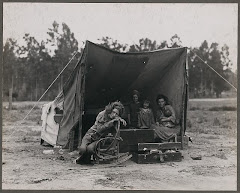
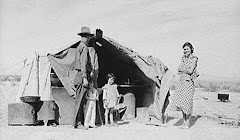
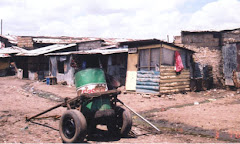

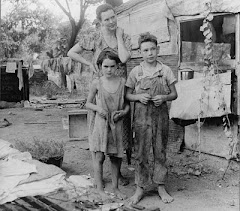




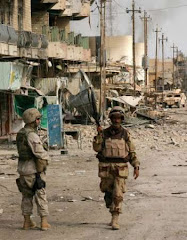
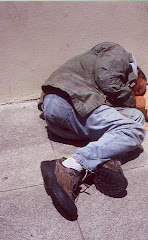
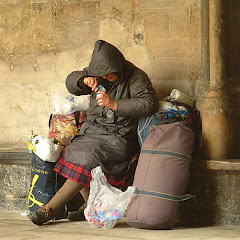

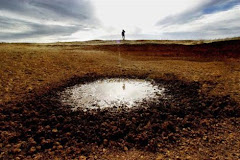


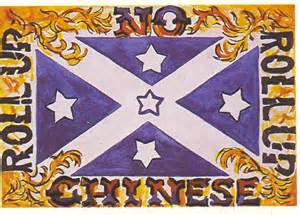

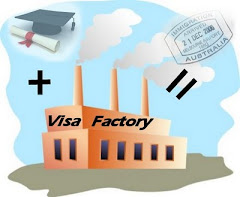
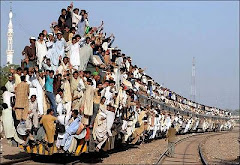

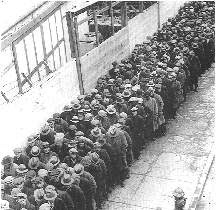

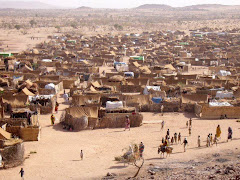
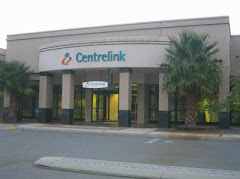








The Theatre Begins
Opening night for the Greens with their 'theatre of the absurd' in the lead up to the September Federal Election. Act 1: Senator Milne is stretching the imagination a bit far if she really thinks her sudden concern for farmers or her 'environmentalist' spin will wash with the Australian community.Sorry to burst the bubble on opening night of this theatre, but all we have heard from the Greens in recent years is same sex marriage and refugees, in fact they campaigned solely on these very two issues at the last election, no concern then for struggling farmers regarding uncertainties around water, in fact the Greens are behind the farmers losing water ! The explosion of mining and destruction of Australian farms due to policy assisted by the Greens, all the foreign buy - ups that have spiralled out of all control on their watch, whilst in wedded bliss with Labor. No concerns about the environmental damage done by the influx of hordes of refugees and all the bulldozing and clearing of land to build more houses to accommodate all and sundry and the strain on water and resources ie; environment. No concern for homeless Australians, no, no, no, it's all mass immigration, refugees and same sex marriage. Now that the honeymoon is over, we are supposed to believe the old "environmentalist" cover story that has been peddled for years and dragged out the closet of convenience on cue ?
Senator Milne underestimates the Australian people, perhaps her target audience for this theatre is for those with amnesia ?
If this is Act 1, of the Greens election campaign, we can hardly wait for Act 2. perhaps that will be centred around the seedy details of their 'pillow talk' with Labor, we can do without hearing all the muck to be raked up and all the dirty deeds done dirt cheap. Of course there is no show without Punch ! This divorce is set to get ugly and the implosion begins, bang, crash the final curtain call in this theatre of the absurd. No Encores please we've heard enough toxic rubbish from the Greens.
Below for reference some of Milne's crafted spin:
...............................................................................
Mining Anger
Senator Milne used her speech to launch an attack on the policies of both Labor and the Coalition, and to argue for the re-election of the Greens.
"Without the Greens holding the balance of power in the Senate, Australia risks the repeal of the mining tax - giving up on any chance of the Australian community receiving its fair share of the bounty of our mineral wealth," she said.
"We risk farmers being driven from their land by mining companies, without any resistance from the Parliament."
She has questioned how Ms Gillard and Opposition Leader Tony Abbott can voice support for Australia becoming a "food bowl", but at the same time support coal seam gas mining projects on agricultural land.
And Senator Milne fired another broadside at Environment Minister Tony Burke, describing his decision to reject a proposal to list Tasmania's Tarkine wilderness on the National Heritage register as "pathetic".
"Minister Burke sold out the Tarkine to mining interests at the behest of New South Wales right [faction], Paul Howes."
"Only the Greens are standing up for the Tarkine - the largest tract of temperate rainforest left in Australia."
http://www.abc.net.au/news/2013-02-19/